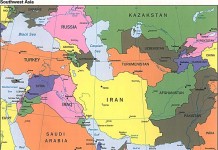Context
 Background
Background
Although still unfolding, the Gaza crisis will create a credibility crisis on all Global War On Terrorism (GWOT) fronts across the globe and will complicate the Federally Administered Tribal Areas (FATA) and Afghan wars
An essential element of the new American strategy for the Afghan war is a campaign to win the hearts and minds of the Afghan people. In a very short period, the conflict in Gaza has achieved just the opposite. In its recent messages Al Qaeda has pointed to Palestine – and employed this justification: If it is right to fight a jihad in Palestine, why is it unacceptable to do the same in Iraq and Afghanistan? It is essential to remember that historical causes of Muslim grievances which terrorist ideologues have used since the beginning, trace back to the Palestinian Issue and the question of Jerusalem.
Analysis
The Gaza conflict has come at the worst possible time, as the change in administrations in Washington creates a power vacuum. The image of the new U.S. administration has been tarnished by daily coverage of the civilians killed by Israel, while the new president keeps quiet in observance of transition protocols.
This has presented an excellent opportunity for Al Qaeda and affiliated extremists to make a comeback in the streets of the Arab and Muslim world, particularly in Egypt, Pakistan, and Saudi Arabia. By the time President Obama does anything meaningful, the struggle for legitimacy may have already tilted towards the extremists in FATA and Afghanistan.
Europe, on the other hand has gone all out to salvage the situation. It understands the implications of the worsening situation in the Middle East for domestic minority relations, as well as on the various fronts of GWOT in which NATO plays an active role. EU and NATO find themselves under pressure not only from resurgent Russia, but also from the developing crisis in the Middle East.



